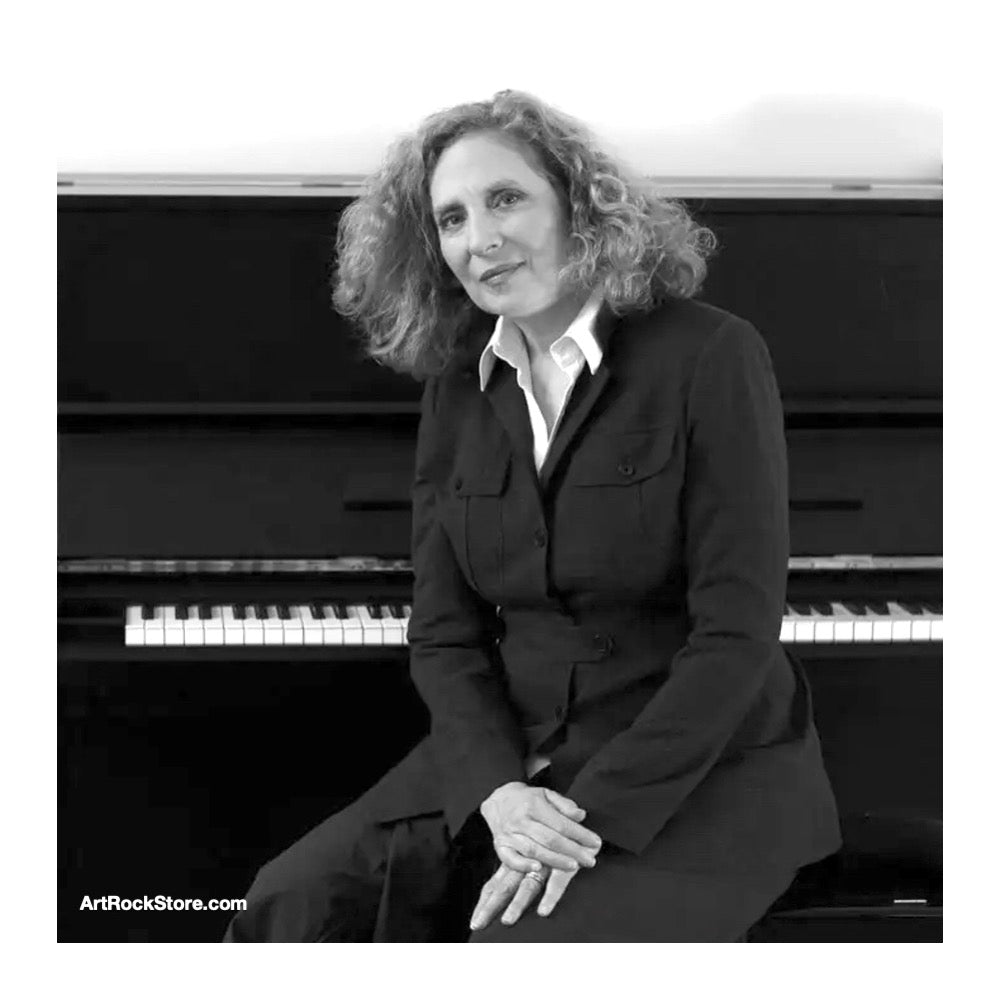
Julia Wolfe | Artist
Julia Wolfe is an American modern classical composer born 1958 in Philadelphia, Pennsylvania. She is also professor of music at New York University. Wolfe is ranked among the more important composers linked to post-minimalism, though her music is quite eclectic and almost defies classification. There is a range of disparate elements in her works, from rock and minimalist influences to features such as long pauses and various extreme uses of sound, which achieve massive, almost deafening, decibel levels. She has also incorporated microtonal elements and natural sounds emanating from both rural and urban sources. Wolfe has written for orchestra, chamber ensemble, solo keyboard, and for theater and film. As a teenager, Wolfe learned piano but she only began to study music seriously after taking a musicianship class at the University of Michigan, where she received a BA in music and theater in 1982. In her early twenties, Wolfe wrote music for an all-female theatre troupe. On a trip to New York, she became friends with composition students Michael Gordon and David Lang, both of whom had recently attended the Yale School of Music and who encouraged her to apply. She went to Yale in 1984 and studied with Martin Bresnick, and she married Michael Gordon the same year. After receiving her M.M. in 1986, Wolfe, Gordon, and Lang founded the new music collective Bang on a Can in 1987. That group is now an organization with a concert series and tours, and a summer festival in the Berkshires for emerging composers and performers. Wolfe, Gordon, and Lang founded Red Poppy Music in 1993 as a printed music publishing company. The three then started record label Cantaloupe Music in 2001. Wolfe's early compositions began to attract commissions from prestigious sources, including the Library of Congress, Koussevitzky Foundation, the American Academy and Institute of Arts and Letters, and from ensembles like the Kronos Quartet. In the late '90s, she collaborated with Gordon and Lang on the so-called comic book opera The Carbon Copy Building, which was premiered in Turin, Italy, in 1999. Among her later works is Steel Hammer (2009), the first in a series of compositions concerning the American worker. Following in this series are Anthracite Fields (2014), and Fire in My Mouth (2019), which was commissioned and premiered by the New York Philharmonic and was nominated for a Grammy Award in 2019. Recommended albums serving as an introduction to Wolfe's music include Arsenal of Democracy (1996), Fire in my Mouth (2019), Steel Hammer (2014), and Anthracite Fields (2015). Various ensembles have performed Wolfe's music but Bang on a Can are perhaps the most regular performers of her work. The influence of pop culture can be heard in many of Wolfe's works, including "Lick" and "Believing" for the Bang on a Can All-Stars. Lick, based on fragments of funk, has become a manifesto for the new generation of pop-influenced composers. The raucous "My Lips From Speaking" for six pianos was inspired by the opening riff of the Aretha Franklin tune "Think". Wolfe's Dark Full Ride is an obsessive and relentless exploration of the drum set, beginning with an extended hi-hat spotlight. According to The Wall Street Journal, Wolfe's music has "long inhabited a terrain of its own, a place where classical forms are recharged by the repetitive patterns of minimalism and the driving energy of rock". Her work Anthracite Fields, an oratorio for chorus and instruments, was awarded the 2015 Pulitzer Prize for Music.
Artist Website: juliawolfemusic.com
Featured Albums: Julia Wolfe
Related Artists: Bang on a Can, John Cage, David Lang, Michael Gordon
